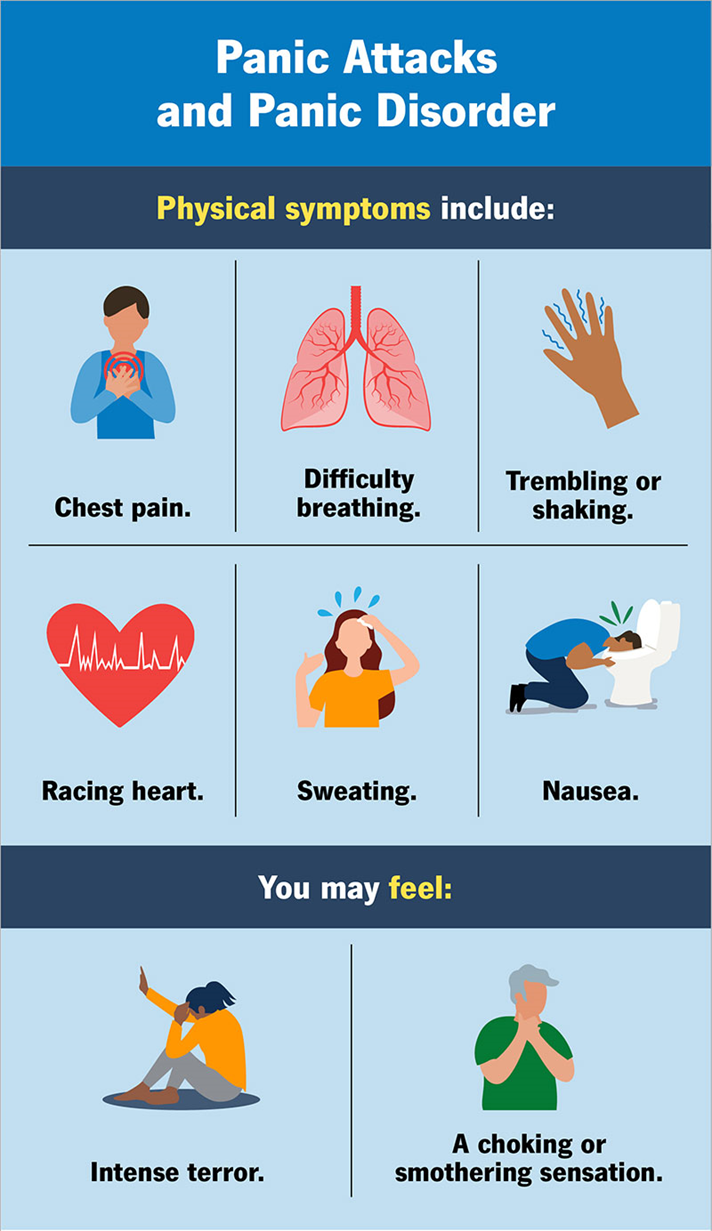An inpatient on the psychiatric unit is having a panic attack. An appropriate nursing intervention at this time would be to:
Increase external stimuli.
Stay with the client and speak to them in a calm manner.
Allow the client to have their requested space.
Review the updated problem list with the client.
The Correct Answer is B
Choice A Reason:
Increase external stimuli.
Increasing external stimuli is not appropriate during a panic attack. Panic attacks are characterized by intense fear and anxiety, often accompanied by physical symptoms such as rapid heartbeat, sweating, and shortness of breath. Increasing external stimuli can exacerbate these symptoms and heighten the client’s distress. The goal during a panic attack is to reduce stimuli and create a calming environment to help the client regain control.
Choice B Reason:
Stay with the client and speak to them in a calm manner.
This is the correct response. Staying with the client and speaking to them in a calm manner provides reassurance and helps to ground them during the panic attack. The presence of a calm and supportive nurse can help reduce the client’s anxiety and provide a sense of safety. This approach aligns with therapeutic communication techniques and is effective in managing acute anxiety episodes.

Choice C Reason:
Allow the client to have their requested space.
While it is important to respect a client’s need for space, leaving them alone during a panic attack may not be the best approach. Clients experiencing panic attacks may feel overwhelmed and frightened, and the presence of a supportive nurse can help them feel safer and more secure. It is important to balance the client’s need for space with the need for support and reassurance.
Choice D Reason:
Review the updated problem list with the client.
Reviewing the updated problem list is not appropriate during a panic attack. This action requires cognitive engagement and focus, which the client may not be capable of during an acute anxiety episode. The priority during a panic attack is to help the client calm down and manage their immediate symptoms, not to discuss or review problems.
\
Nursing Test Bank
Naxlex Comprehensive Predictor Exams
Related Questions
Correct Answer is D
Explanation
The correct answer is d.
Choice A Reason:
The statement “Bureaucratic” is incorrect. Bureaucratic leadership is characterized by strict adherence to rules and procedures, with decisions made based on established policies. While this style ensures consistency and compliance, it does not typically involve the direct and decisive intervention seen in the scenario described. Bureaucratic leaders focus more on following protocols rather than making quick, authoritative decisions.
Choice B Reason:
The statement “Laissez-Faire” is incorrect. Laissez-Faire leadership is a hands-off approach where leaders provide minimal direction and allow team members to make their own decisions. This style is the opposite of what is demonstrated in the scenario, where the nurse takes immediate control of the situation. Laissez-Faire leaders typically avoid intervening directly and prefer to let issues resolve themselves.
Choice C Reason:
The statement “Democratic” is incorrect. Democratic leadership involves participative decision-making, where leaders seek input and feedback from team members before making decisions. In the scenario, the nurse does not seek input from the group but instead makes a unilateral decision to handle the matter and move on. This approach is not characteristic of democratic leadership, which values collaboration and consensus.
Choice D Reason:
The statement “Autocratic” is correct. Autocratic leadership is characterized by individual control over decisions, with little input from group members. The nurse’s behavior in the scenario—taking charge of the situation and making a quick decision without consulting the group—is indicative of an autocratic leadership style. Autocratic leaders are decisive and often make decisions independently, focusing on efficiency and control.
Correct Answer is C
Explanation
Choice A Reason:
This response is inappropriate as it blurs the professional boundaries between the nurse and the client. Nurses are expected to maintain a professional relationship with their clients to ensure that care is provided in an ethical and unbiased manner. Suggesting a potential future relationship can lead to misunderstandings and compromise the therapeutic relationship.
Choice B Reason:
While this response correctly states hospital policy, it does not address the underlying issue of maintaining professional boundaries. It is important for the nurse to communicate the need for a professional relationship clearly and directly. Simply citing policy may not fully convey the importance of these boundaries to the client.
Choice C Reason:
This response is the most appropriate because it clearly establishes the professional nature of the nurse-client relationship. It helps the client understand that the nurse’s role is to provide care and support within a professional framework. This clarity is essential for maintaining trust and ensuring that the therapeutic relationship remains effective and ethical.
Choice D Reason:
Although this response sets a personal boundary, it does not address the professional aspect of the nurse-client relationship. The nurse’s marital status is irrelevant to the professional boundaries that need to be maintained. It is more important to emphasize the professional nature of the relationship rather than personal reasons for declining the request.
Whether you are a student looking to ace your exams or a practicing nurse seeking to enhance your expertise , our nursing education contents will empower you with the confidence and competence to make a difference in the lives of patients and become a respected leader in the healthcare field.
Visit Naxlex, invest in your future and unlock endless possibilities with our unparalleled nursing education contents today
Report Wrong Answer on the Current Question
Do you disagree with the answer? If yes, what is your expected answer? Explain.
Kindly be descriptive with the issue you are facing.
